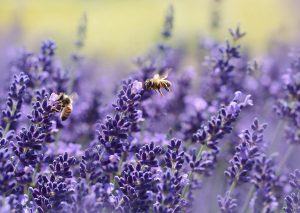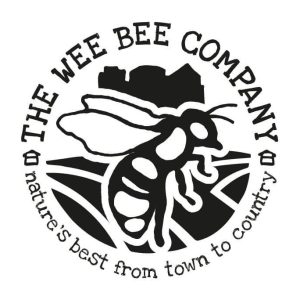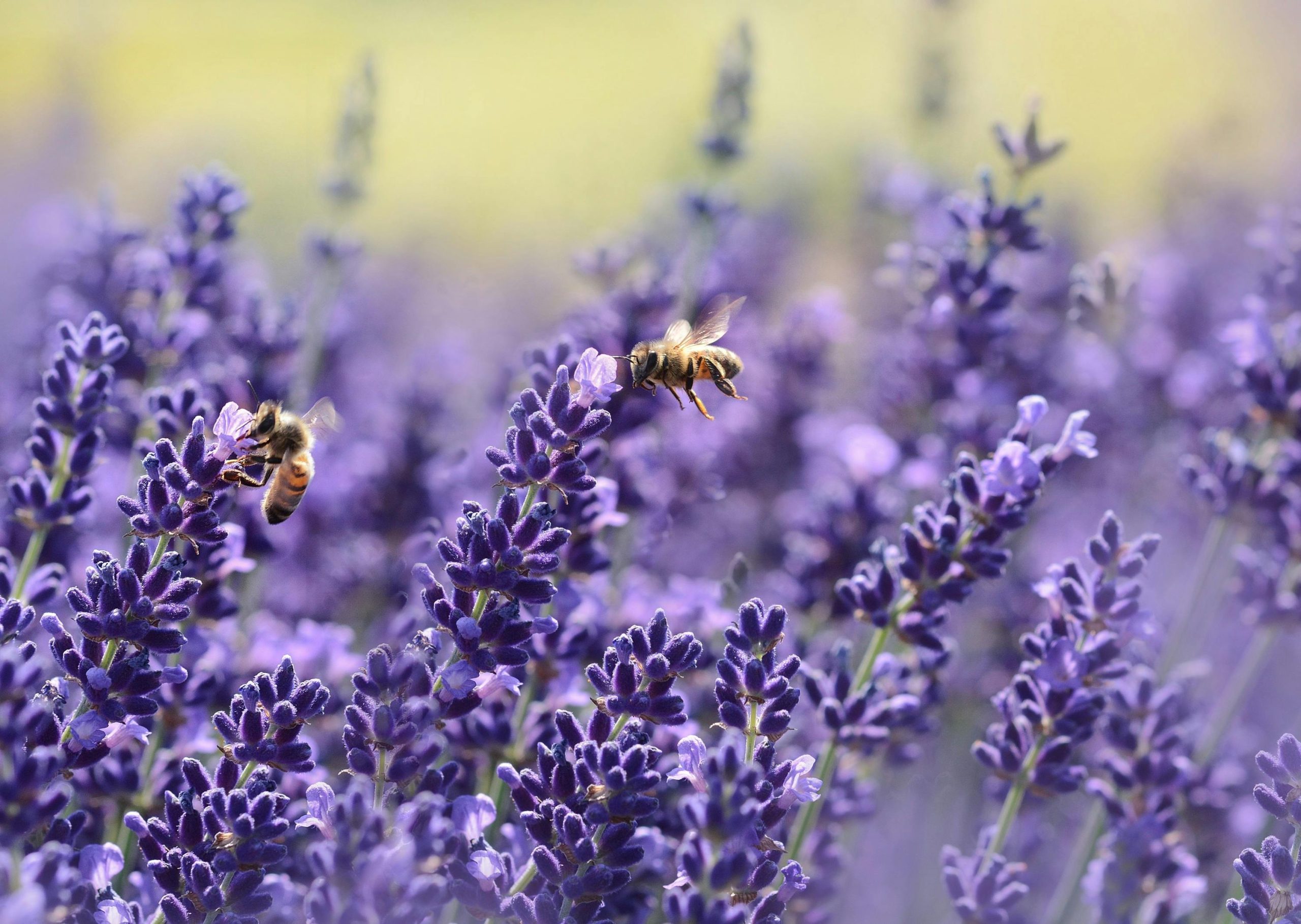Guest Blog: The Wee Bee Company
As we celebrated World Bee Day 2024 this week and in honour of No Mow May, we caught up with Andrew McAllister, owner of The Wee Bee Company, to find out more about this important insect and the role it plays in our daily lives.
 The Wee Bee Company works with businesses to help them fulfil their social and environmental responsibilities by placing and managing beehives on their sites. These honey producing power houses can keep businesses in their own supply of locally made honey, engage employees and the community with hands on experience and learning opportunities and keep an important pollinator happy, healthy and safe.
The Wee Bee Company works with businesses to help them fulfil their social and environmental responsibilities by placing and managing beehives on their sites. These honey producing power houses can keep businesses in their own supply of locally made honey, engage employees and the community with hands on experience and learning opportunities and keep an important pollinator happy, healthy and safe.
The result is happy bees, happy staff and a happy environment.
Andrew tells us more about why bees, World Bee Day, and No Mow May are so important:
- Pollination and Food Security
Bees play a crucial role in pollinating many of the crops that humans rely on for food.
About 75% of the world’s food crops depend to some extent on pollination by bees and other pollinators. This includes fruits, vegetables, nuts, and seeds, which are essential for a healthy diet.
- Biodiversity
Bees contribute significantly to the biodiversity of ecosystems. By pollinating a variety of plants, they help maintain and promote the growth of different plant species, which in turn supports diverse animal populations and create balanced ecosystems.
- Environmental Indicators
 Bees are sensitive to changes in the environment, making them excellent indicators of ecological health. A decline in bee populations often signals broader environmental issues such as habitat loss, pollution, and climate change. Protecting bees can help address these larger environmental challenges.
Bees are sensitive to changes in the environment, making them excellent indicators of ecological health. A decline in bee populations often signals broader environmental issues such as habitat loss, pollution, and climate change. Protecting bees can help address these larger environmental challenges.
- Economic Value
Bees contribute billions of dollars to the global economy through their pollination services. This includes the direct value of increased crop yields and the indirect benefits of supporting industries like agriculture and horticulture.
- Cultural Significance
Bees have been a part of human culture for centuries, symbolizing hard work, cooperation, and the interconnectedness of life. Celebrating World Bee Day helps raise awareness of their importance and promotes the need for greater conservation efforts.
- Conservation Efforts
World Bee Day aims to draw attention to the threats faced by bees, such as pesticide use, habitat destruction, various diseases, and climate change. It encourages positive actions to protect and support bee populations, such as creating bee-friendly habitats, reducing pesticide usage, and supporting sustainable agricultural practices.
- Global Collaboration
World Bee Day promotes international cooperation and encourages governments, business organizations, all the way down to individual people that are interested in the plight of the bees to work together to help protect bees. It highlights the need for global strategies and policies to address the decline in bee populations.
- The Wonder of Honey
 Of course, you can’t talk about bees without mentioning honey. This fascinating and delicious substance has a rich history and numerous unique properties. A natural sweetener, it has been around for centuries as a food source and medicine due to its antibacterial and anti-inflammatory properties. Archaeologists found pots in ancient Egyptian tombs, and it was still edible due to its natural preservation!
Of course, you can’t talk about bees without mentioning honey. This fascinating and delicious substance has a rich history and numerous unique properties. A natural sweetener, it has been around for centuries as a food source and medicine due to its antibacterial and anti-inflammatory properties. Archaeologists found pots in ancient Egyptian tombs, and it was still edible due to its natural preservation!
The flavour and colour of honey can vary greatly depending on the types of flowers the bees visited to collect the nectar. This diversity results in a wide range of honey varieties, each with its unique taste, aroma, and colour. All of this makes honey an important natural resource as well as a cultural and culinary treasure enjoyed by people around the world.
- No Mow May
Plantlife’s No Mow May initiative encourages people to let their lawn grow, giving a vital food source for pollinators such as bees, tackling pollution and helping to lock away carbon below ground.
Simply allowing your lawn to grow can deliver enormous benefits for nature, communities and climate so be sure to check out their website for more details.
 In summary, World Bee Day is crucial for raising awareness about the essential role bees play in our ecosystems, food security, and economies, as well as for promoting actions to protect and sustain their populations for future generations. No Mow May can further help to provide a sanctuary, food source and much needed ecosystem for bees and many other pollinators as well as capturing carbon and helping tackle pollution.
In summary, World Bee Day is crucial for raising awareness about the essential role bees play in our ecosystems, food security, and economies, as well as for promoting actions to protect and sustain their populations for future generations. No Mow May can further help to provide a sanctuary, food source and much needed ecosystem for bees and many other pollinators as well as capturing carbon and helping tackle pollution.
If you’re interested in discovering how your business can help support a thriving beehive, get in touch with Andrew today by emailing theweebeeco@gmail.com


